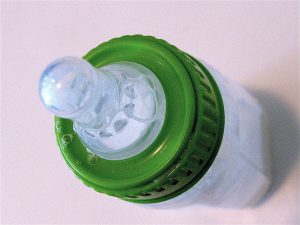Pesticide residues in breast milk from Tanzania and their associated health risks
 Photo credit: Nerissa's ring
Photo credit: Nerissa's ring
A recent study published in Environmental Research is the first study to quantify amounts of organochlorine pesticides and polychlorinated biphenyls in human breast milk from Tanzania. The study assessed 95 mothers and their infants for associations between growth and weight in the children and the amount organochlorine pesticides detected in breast milk. DDT metabolites (p,p’-DDE and/or p,p’-DDT) were detected in 100% of the breast milk samples. The estimated daily intake of DDTs was higher than the provisional tolerable intake in 2% of the infants, dieldrin was higher than the provisional tolerable intake in 6% of the infants, and PCBs were higher than the provisional tolerable intake in 48% of the nursing infants. Furthermore, smaller head circumference was associated with p,p’-DDE in female infants, suggesting that organochlorine exposure during pregnancy may influence fetal growth.



